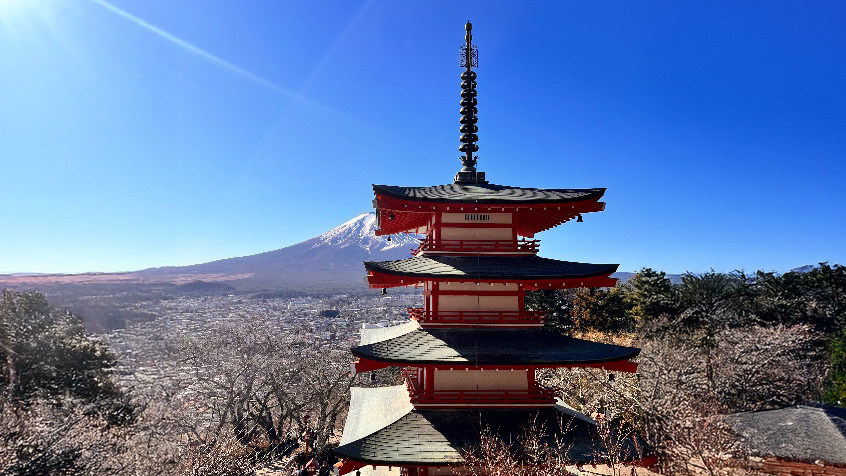Beyond tourism: What it’s really like to live in Japan


Written by
Name: Andra
Country of origin: Romania
How long you’ve lived in Japan: Fully in Japan since Feb 2023 (resident since Sept 2022)
Where you live in Japan: Tokyo
Instagram
Japan is a country that many people around the world dream of visiting. It is famous for its beautiful temples, impressive technology, polite people, and stunning natural landscapes. The food, culture, and peaceful atmosphere make it an attractive place for travelers. However, while Japan might seem perfect when visited as a tourist, living in Japan can be a very different experience.
Many people go to Japan on vacation and experience the highlights of the country, but they don’t see the daily challenges of living here. From language difficulties to cultural differences, life in Japan can be more complicated than most tourists expect.
In this article, we will explore what it is like to live in Japan, the challenges that expats face, and how life in Japan is different from simply visiting as a tourist.
Challenge #1: Finding a place to live in Japan
One of the first challenges many newcomers face when they move to Japan is finding a place to live. For tourists, finding a hotel or short-term rental is easy, but when trying to settle in Japan for a longer period, things get more complicated.
In many countries, renting an apartment is a simple process. You can search for listings online, choose an apartment, sign a contract, and move in. However, Japan has a very different approach. Most rental agreements are in Japanese, which can be a major problem for someone who do not speak the language. Even if someone has the financial means and all the required documents, they may find it difficult to communicate with landlords or real estate agents.
Another issue is the lack of pet-friendly apartments. In many countries, it is common for people to have pets in their homes, but in Japan, many apartments do not allow pets. This can make finding a place to live even more challenging for people with animals. Apartments that allow pets are often more expensive or located in less convenient areas, such as the outskirts of the major cities or the countryside.
For those who cannot communicate in Japanese, the process of renting an apartment can feel overwhelming. In addition to the language barrier, there are many other aspects of the rental process that might be unfamiliar, such as the requirement for a deposit, key money (a non-refundable payment to the landlord), and contract terms that may differ from those in other countries, to say the least.
Challenge #2: Overcoming the language barrier
One of the major challenges one faces when they arrive in Japan, is the language barrier. In Japan, the majority of people speak Japanese, and most official documents are in the Japanese language. While some people may speak English, especially in larger cities, it is not as common as in other countries. This can make everyday tasks, like grocery shopping, ordering food at a restaurant, or even asking for directions, much harder for non-Japanese speakers.
For many expats, the language barrier is the most frustrating aspect of living in Japan. Basic tasks can take much longer than expected because it is difficult to communicate. For example, at a supermarket, all the product labels are in Japanese. Without understanding the language, it can be hard to know what you are buying, which can lead to confusion and making mistakes. While translation apps can be helpful, they are not always accurate, and sometimes they create more problems than solutions.
The same issue sometimes applies to using public transportation. Japan’s train system is one of the most efficient in the world, but it can be difficult to navigate if you don’t speak the language. Learning how to read train schedules, understand ticketing systems, and know the different types of trains (local, express, rapid) takes time and patience. For tourists, using the train may seem easy because everything is clearly labeled in English. But for someone living in Japan, learning how to use the system correctly can be a challenge.

Challenge #3: Cultural differences in Japan
Another significant difference between visiting Japan as a tourist and living in Japan is the culture. Japan is a country with a rich history and unique customs, and while tourists may enjoy the beauty of the temples or the food, living in Japan means adjusting to a very different way of life.
Japanese society is known for being polite and respectful. It is a place where traditions and social rules are deeply valued, and people are expected to follow certain codes of behavior. For example, when entering a Japanese home, it is customary to remove your shoes and wear indoor slippers. At the same time, it is also expected for you to change to different slippers when entering the bathroom. This may seem like a tedious process, but it is an important part of Japanese culture. Visitors may not be aware of these customs, but when living in Japan, understanding and following these social rules is necessary.
Another cultural difference is the level of formality in Japan. In many countries, people speak to each other casually, but in Japan, there is a strong emphasis on formal language and respect, which differs depending on each individual interaction. This formality extends to both spoken and written communication. For example, when speaking to someone, you need to use polite language, and the way you address people depends on their age, position, or relationship to you. People new to the country may find this difficult to adjust to at first, especially if they come from a culture with more relaxed social rules.
In addition, there are many small but important social customs in Japan that expats must learn. These include how to greet people, how to behave in public, and how to interact with strangers. For example, in Japan, it is common to bow when greeting someone, and personal space is highly valued so hugging, kissing on the cheeks or shaking hands is not common. These cultural norms may feel strange at first, but they are essential to living in Japan.
Challenge #4: Food and grocery shopping in Japan

Food is one of the most enjoyable aspects of visiting Japan, but when living there, food shopping and cooking can be a challenge. Japan is known for its delicious cuisine, including sushi, ramen, tempura, and many other dishes. However, the way food is prepared and sold in Japan is very different from what many foreigners are used to.
For one thing, many supermarkets in Japan only sell ingredients that are used in Japanese cooking. While tourists may enjoy the food at restaurants, living in Japan means having to learn how to cook with local ingredients. For example, there are different types of rice, sauces, and seasonings that may be unfamiliar to one. Depending on the person though, finding the right ingredients or even learning how to cook Japanese food can be both frustrating or very rewarding.
In addition, food packaging in Japan is often very different from what people might be used to in other countries. For example, fruits and vegetables are often sold in small, neatly packaged portions, and some items may be more expensive than expected. Understanding how to shop for food in Japan takes time, and it is a learning process for most newcomers.
Challenge #5: Public transportation in Japan
One of the highlights of visiting Japan as a tourist is using the country’s efficient public transportation system. The trains and buses are known for being punctual, clean, and easy to use, with of course, some exceptions. However, living in Japan means learning how to navigate this system effectively.
At a first glance, the public transportation system may seem simple. There are clear signs in English, and trains run on time. But for someone who is living in Japan, there is much more to learn. There are different types of trains, such as local, rapid, and express trains, and each one has its own schedule and ticketing system. The process of learning which train to take, how to buy tickets, and how to understand the complex subway maps can take some time.

Even simple tasks, like knowing when to get off the train or how to transfer between lines, can be confusing for someone new to the system. While many stations have signs in English, they are not always easy to understand, and sometimes it is necessary to rely on apps or maps to figure out the best route.
Adapting to life in Japan: Why living in Japan is worth it
Living in Japan is not always easy, especially in the beginning. The language barrier and the cultural differences can make daily life feel challenging. However, many people find that once they adjust, they begin to appreciate the beauty and order of Japanese life.
One of the things that many people enjoy about living in Japan is the sense of community. Despite the formality of the culture, many people in Japan are warm, kind, and helpful and people are generally respectful of each other’s space and privacy.
Over time, many expats living in Japan find that they start to feel more at home. They learn the language, adapt to the culture, and build relationships with local people. They come to appreciate the small things, like the changing seasons, the cleanliness and safety of the country, and the politeness of the people.
For those who are willing to put in the effort to learn and adapt, living in Japan can be a rewarding experience. While the country may seem perfect from the outside, it is the everyday experiences, the small challenges, and the cultural adjustments that make life in Japan truly special. Whether it is navigating the train system, cooking a meal with local ingredients, or simply learning to appreciate the customs and traditions, living in Japan offers a chance to experience a different way of life and to grow as a person.
Summary: Embracing Life Beyond Tourism in Japan
Living in Japan offers a distinct experience far removed from the typical tourist journey. While the allure lies in its picturesque temples, culinary delights, and advanced technology, daily life presents unique challenges for foreigners. From language barriers to cultural nuances, settling in Japan requires patience and adaptability.
Finding accommodation can be a complex process, especially with language and cultural hurdles. Everyday tasks such as shopping or using public transportation demand new skills and understanding. Yet, these challenges pave the way for personal growth and deeper cultural appreciation.
For those willing to immerse themselves, Japan reveals its finer details—a community-oriented society, a meticulous respect for traditions, and an appreciation for life’s subtle beauty. While the transition may be daunting, the rewards of living in Japan are profound, offering not only a rich cultural experience but also an opportunity for personal evolution.
